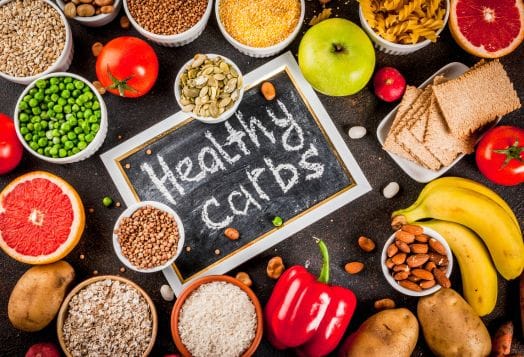Looking for a natural way to gain muscle? You’re not alone! But let's face it, building muscle naturally takes commitment, an appropriate workout, and a healthy diet. The good news? With the right approach, you can achieve significant muscle gain while staying fit and healthy.
Let's look at the most effective ways to boost bodybuilding naturally and sustainably.

Mastering Strength Training for Maximum Gains
Building muscle is more than just lifting weights; it's also about lifting correctly. If you've been going to the gym but not seeing any results, your approach likely needs to be tweaked. Here's how to get the most out of your muscle-building exercises for visible outcomes.
1. Progressive overload is key
You won't build muscle if you lift the same weight every week. To promote growth, increase resistance progressively. Make sure you're pushing your muscles by increasing the weight and repetitions. This approach is a game-changer in muscle building.
2. Activate multiple muscle groups

Exercises like squats, deadlifts, and bench presses activate multiple muscle groups, making them crucial for muscle gain. They also help build overall strength and improve body balance.
3. Time under tension matters
It’s not just about lifting heavy—it’s about how long your muscles are under strain. Slow, controlled reps increase time under tension, promoting better muscle-building results.
4. Rest and recovery are non-negotiable
Muscles grow when they recover, not when you train. Make sleep a priority, get 7 to 9 hours, drink plenty of water, and give your muscles at least 48 hours to rest before you work them out again.
Beginner vs. Advanced Workout Plans
Different fitness levels require different approaches to training. Here’s how to structure your workouts based on your experience level:
Beginner Muscle-Building Workouts
Workout Split: Full-body workouts 3-4 times per week
Exercises: Squats, push-ups, pull-ups, lunges, planks, shoulder presses
Reps & Sets: 3 sets of 10-12 reps
Focus: Building strength, learning form, and consistency
Advanced Muscle-Building Workouts
Workout Split: Split routines (upper/lower body or push/pull/legs) 4-6 times per week
Exercises: Squats, deadlifts, bench press, dips, Romanian deadlifts
Reps & Sets: 4-5 sets of 6-10 reps
Focus: Progressive overload, advanced techniques (drop sets, supersets, eccentric training)
Nutrition Strategies for Natural Muscle Growth
No matter how hard you train out, you won't be able to gain muscle unless you eat appropriately. Proper nutrition is essential for natural muscle growth and recovery. Let's find some essential strategies that will help with your way to proper nutrition while building muscles.
1. Protein is the building block
Protein is essential for muscle repair and growth. Aim for 1.6–2.2 grams of protein per kilogram of body weight daily. Follow high protein diet that include lean meats, eggs, dairy, or plant-based proteins, based on your dietary preferences.
2. Don’t fear carbs and fats

The energy required for vigorous exercise is supplied by carbohydrates. A balanced intake ensures you sustain your muscle-gaining efforts. While healthy fats from nuts, seeds, and avocados aid in the regulation of hormones like testosterone, which is crucial for bodybuilding, complex carbohydrates like whole grains, fruits, and vegetables offer consistent energy. Progress may be slowed if these macronutrients are eliminated since they can cause lethargy and decreased muscle repair.
3. Stay hydrated
Dehydration leads to muscle fatigue and poor performance. To sustain strength and endurance, drink lots of water throughout the day, particularly before and after workouts. Water helps with nutrient absorption, joint lubrication, and muscle contractions. Muscle recovery might be delayed, and workout efficiency can suffer from even mild dehydration. Drink at least two to three litres of water per day and more during vigorous workouts to make up for the lost fluids.
4. Timing matters
For those searching for the best diet for muscle gain without supplements, focus on whole foods rich in protein, carbs, and healthy fats to fuel your muscles naturally.
Consume protein and carbs post-workout to maximise muscle recovery. Eating at the right time speeds up muscle growth and helps replenish glycogen stores. To promote muscle regeneration, eat a balanced meal within 30 to 60 minutes of working out that includes lean protein (fish, poultry, and tofu) alongside rapidly digestible carbohydrates (rice, potatoes, and fruit). This "anabolic window" reduces muscle breakdown and enhances protein synthesis. Ignoring post-workout nutrition can cause extended recovery periods and inhibit muscle growth.
Common Mistakes & Myths in Muscle Building
Many misconceptions prevent people from achieving their muscle-building goals. Let’s address a few:
Myth: Lifting heavy makes you bulky
Truth: Heavy lifting combined with proper nutrition leads to muscle definition, not excessive bulk.
Myth: You need supplements to gain muscle
Truth: While supplements can help, whole foods provide all essential nutrients for muscle growth.
Myth: More training equals more gains
Truth: Overtraining leads to burnout. Rest is just as crucial as training.
Lifestyle Changes to Boost Muscle Growth
Your lifestyle choices play a significant role in achieving long-term body-building success. Here’s how to set yourself up for consistent progress.
1. Manage stress levels
Excessive cortisol levels brought on by stress can prevent muscle growth by encouraging muscle breakdown and decreasing the effectiveness of recovery. To manage stress, practice techniques like deep breathing, meditation, or light stretching. Making relaxation techniques a priority can help your body maintain the ideal conditions for muscular growth and repair.
2. Consistency is king
You won’t see results overnight. Stay consistent with your muscle-building workout plan and make gradual improvements in intensity and volume over time. Set a routine that aligns with your fitness goals, and resist the temptation to switch plans frequently. Progress takes time, and commitment is key to seeing sustainable changes.
3. Track your progress
Keeping a workout journal or using fitness apps to record weights, reps, and progress photos can help you stay motivated and make necessary adjustments. By keeping track of your progress, you can determine and recognise your successes as you go.
4. Avoid overtraining
"More" does not always mean "better". Excessive training without adequate rest can cause injuries and delay the development of muscle mass. Excessive training can lead to burnout, muscle exhaustion, and an elevated risk of injury. Take breaks, pay attention to your body, and prioritise quality training over quantity. Prioritising rest and active recovery will result in long-term success.
Start Your Muscle-Building Journey Today
Building muscle naturally requires the right training, nutrition, and consistency. But with so much information out there, it’s easy to feel lost. Strength training, proper recovery, and a well-balanced diet work together to help you achieve sustainable results.
Disclaimer: This information provided is intended for general informational purposes only. It is not a substitute for professional advice or guidance. For personalised recommendations or specific concerns, please consult a certified nutritionist.




